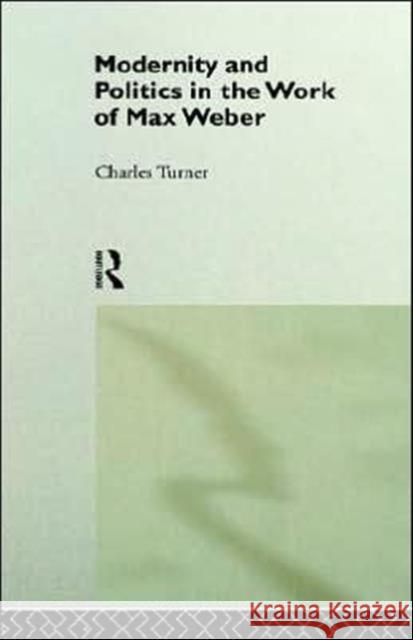Modernity and Politics in the Work of Max Weber » książka
Modernity and Politics in the Work of Max Weber
ISBN-13: 9780415064903 / Angielski / Twarda / 1992 / 232 str.
Modernity and Politics in the Work of Max Weber
ISBN-13: 9780415064903 / Angielski / Twarda / 1992 / 232 str.
(netto: 880,84 VAT: 5%)
Najniższa cena z 30 dni: 856,36
ok. 16-18 dni roboczych.
Darmowa dostawa!
In the last decade an increasing amount of Anglo-American scholarship has been devoted to the centrality of politics within Max Weber's work. There has been a radical shift away from the Parsonian view that Weber was a mainstream sociologist. While broadly sympathetic to these approaches, Charles Turner argues that none of them have dealt adequately with Weber's concept of the political. In particular, they seemed to believe that, in order to demonstrate the importance of Weber's politics, it was necessary to read him as neo-Aristotelian, and play down the role of neo-Kantian value philosophy. Turner argues that, while Weber's work certainly bears comparison with themes peculiar to the neo-Aristotelian critique of modernity, an appreciation of the analytical centrality of politics is quite consistent with his appeal to the neo-Kantian philosophy of his own day. The key to this, believes Turner, is an understanding of what Weber means by the tragedy of culture. One of the most distinctive features of the book is that it encourages Weber specialists to situate themselves in a wider range of debates about modernity.











